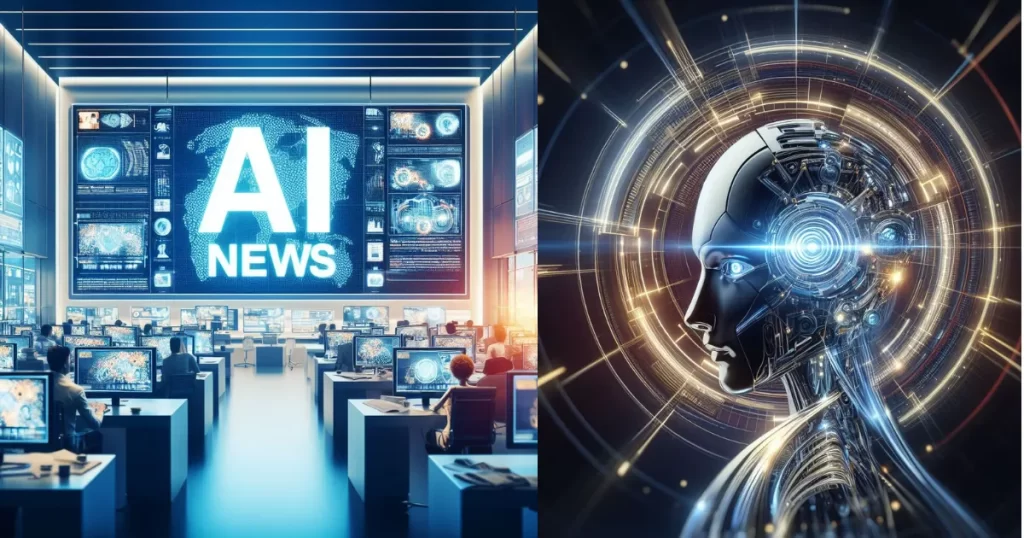A federal judge in New York dismissed a copyright case filed against OpenAI by news outlets Raw Story and AlterNet, which claimed their pieces were used without permission to train the AI company’s language models. This initial ruling, announced on November 7, 2024, represents a big step forward in the continuing argument over the use of copyrighted information to train generative AI.
An overview of the case
The case was initially filed in February 2024, alleging that OpenAI exploited hundreds of pieces from Raw Story and AlterNet without authorization to train their popular AI tool, ChatGPT. The news organizations further alleged that ChatGPT might reprint chunks of these articles upon request, potentially infringing on their intellectual property rights.
U.S. District Judge Colleen McMahon concluded that Raw Story and AlterNet did not disclose sufficient evidence to support the lawsuit’s claims of severe injury. However, the court did allow the news organizations to rewrite and resubmit their lawsuit, stating that she had reservations about their capacity to demonstrate a valid damage.
Legal arguments and findings.
The case was unique in comparison to other lawsuits in which media outlets claim that their copyrighted material is being violated. In this case, Raw Story and AlterNet did not explicitly accuse OpenAI of copyright infringement, but rather of the improper removal of copyright management information (CMI) from their publications.
Judge McMahon agreed with OpenAI’s grounds for dismissing these allegations. She pointed out that the plaintiffs’ main concern was not CMI removal in general, but rather that their articles were utilized to teach ChatGPT without remuneration. She noted that, while such allegations may appear to be real grievances, they do not constitute the sort of injury that would require legal action under present legislation. The court indicated that she was “skeptical” that the outlets could establish a legally significant damage under present legislation, but she permitted a modified complaint to be submitted.
Judge McMahon stated, “Let us be clear about what is truly at issue here. The alleged hurt for which Plaintiffs actually want restitution is not the exclusion of CMI, but the use of Plaintiffs’ articles to construct ChatGPT without remuneration.” She decided that, under present legal frameworks, this type of loss did not meet the standard for a successful action. However, she left the door open for future instances to be worded differently in order to fulfill legal criteria.
Broader Context
This complaint is part of a wider series of legal proceedings brought by copyright holders, including writers, artists, and music publishers, against OpenAI and other tech companies that use vast amounts of data to train AI models. Notably, The New York Times filed a similar lawsuit in December 2023, making it the first substantial challenge from a major media firm.
The legal ramifications of these instances might have far-reaching consequences for how AI businesses get training data and whether compensation becomes common practice. The result of these legal challenges is likely to influence future regulations for both technology corporations and content providers.
The Following Steps
Matt Topic, Raw Story’s attorney, expressed confidence in updating the lawsuit to reflect the court’s concerns. He remarked, “We are confident that we can address the concerns raised by the court through an amended complaint.” OpenAI’s legal team has yet to respond publicly to the new verdict.
The case of Raw Story Media v. OpenAI Inc is a noteworthy illustration of the continuous conflict between technical progress and copyright law. The ultimate conclusion of this and related lawsuits may create standards for how AI developers engage with existing intellectual property rights in their data operations.
Source: Brittain, B. (2024). “OpenAI defeats news outlets’ copyright lawsuit over AI training, for now.” Reuters reported. You can check out the full article here.

I’m Voss Xolani, and I’m deeply passionate about exploring AI software and tools. From cutting-edge machine learning platforms to powerful automation systems, I’m always on the lookout for the latest innovations that push the boundaries of what AI can do. I love experimenting with new AI tools, discovering how they can improve efficiency and open up new possibilities. With a keen eye for software that’s shaping the future, I’m excited to share with you the tools that are transforming industries and everyday life.

